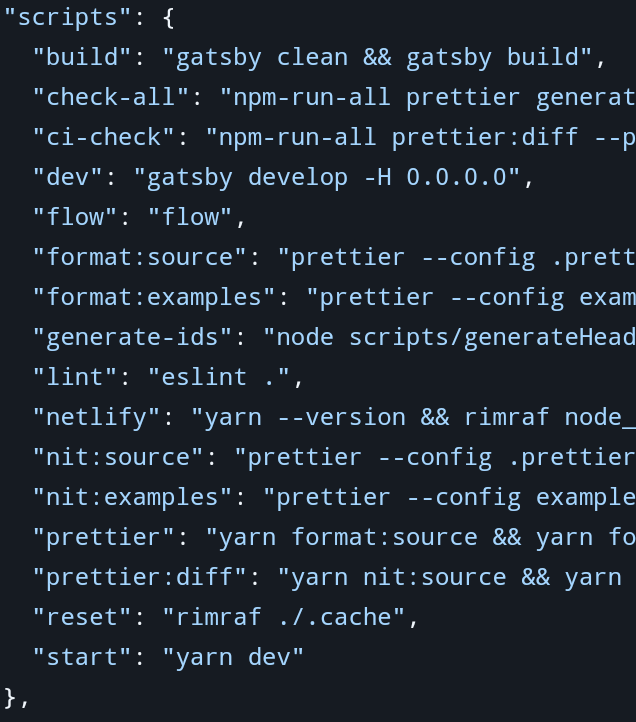Generate offline documentation of reactjs in 5 minutes
Learn how to generate reactjs documentation by understanding the repo and the scripts
Last modified:

When it comes to learning a new language, framework or library, the first and important source of help comes from the documentation provided by the official websites. But it is often difficult to go through the complete documentation immediately. And during development we need to refer to the documentation very frequently.
Having an offline version of the documentation may help to find the information faster and whenever required. Also, it helps to work offline without any distractions from the facebook notifications.
In this post, let's build the offline documentation for reactjs.
Getting the source code
The documentation for reactjs is available on reactjs.org website. The source code for this website is available as a github repository.
Fireup a cmd, clone this repository and cd into the directory
git clone https://github.com/reactjs/reactjs.org
cd reactjs.org
Open the code editor of your choice. If using vscode, just enter
code .
Understanding the tech stack
Once we have the source code, we can see many configuration files there. The most important ones that quickly gives us all the information we need are
gatsby-*.js- these files tells us that Gatsby is used for generating the static HTML for the website.yarn.lock- it is using yarn as the package manager.vercel.json- the website is hosted on vercel
package.json
Perhaps, package.json is the one file that any webdev will start looking at
when they start working on a new project. Once we open this file, we can see the
dependencies of the projects and the scripts used.
From the file we can see the following scripts.

Luckily, we have the build script that we require to build the static HTML.
Commands
Now we have enough information to generate the documentation.
-
Install all the dependencies using the
yarnpackage manager.yarn install -
Run the build script using
yarn buildThis will generate the required static HTML, js, css and all assets in the public folder.
-
Serve the documentation generated in public folder
cd public python -m http.server # simpler # Or if you prefer nodejs yarn add global serve serve
Congratulations! 👏 💐 We now have reactjs documentation available offline.